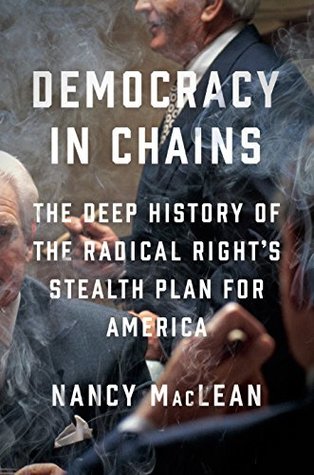He had found theoretical anchors for both sides of his fiscal inclinations: to curtail taxation and contain government spending. “Pay as you go” was both economically wise and morally just, Buchanan concluded in his first book. He took his stand alongside “the much-maligned man in the street,” who compared national budgets to household ledgers and abhorred red ink in either. A government forced to balance its books every year, he believed, would act more like the nineteenth-century federal government and the southern states whose ongoing tightfisted policies he equated with economic liberty.46
...more
Welcome back. Just a moment while we sign you in to your Goodreads account.


